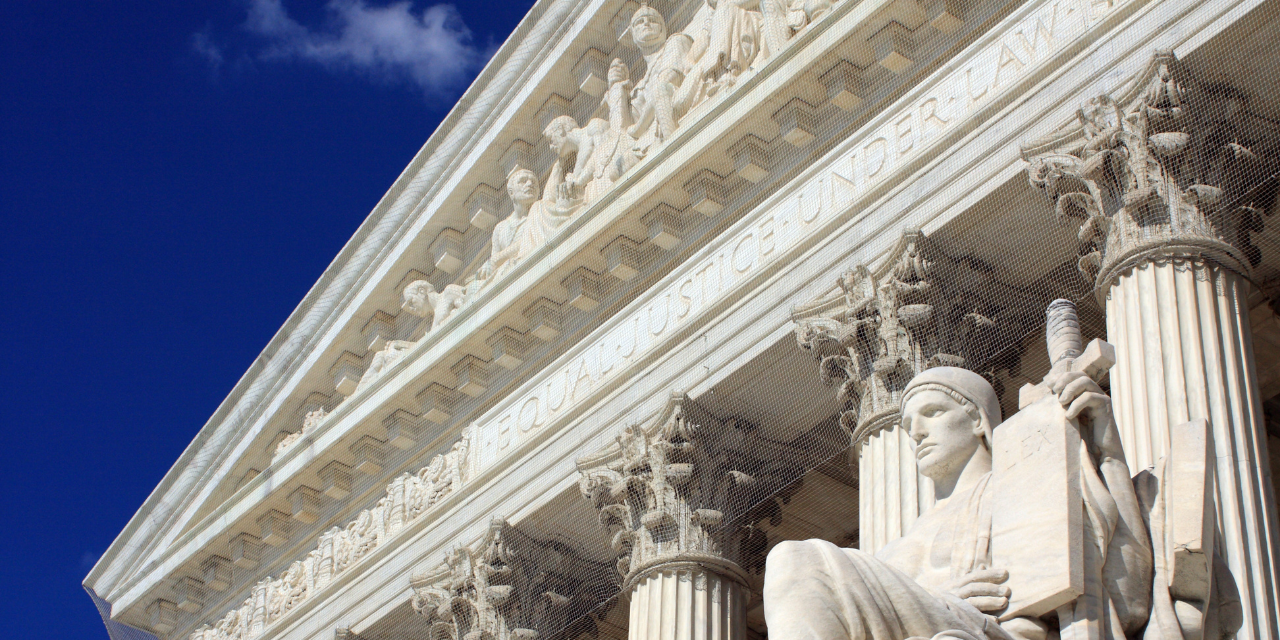The U.S. Supreme Court heard oral arguments on Friday, January 7, in a pair of cases involving two federal mandates regarding COVID-19 vaccination requirements.
The first case dealt with the Occupational Safety and Health Administration’s (OSHA) “Emergency Temporary Standard” issued on November 4, directing employers with 100 or more employees to require either vaccination against COVID-19 or masking in the workplace and weekly tests.
The second argued case involved a vaccination mandate issued by the Centers for Medicare & Medicaid Services (CMS) at the Department of Health and Human Services for healthcare workers in facilities receiving Medicare or Medicaid funds. That mandate covers more than 17 million workers at 76,000 health care facilities.
Both cases involve “emergency requests” from one of the parties for temporary relief from lower court orders while the cases proceed, but the status of each case was markedly different by the time they reached the high court.
In the OSHA case, the 6th U.S. Circuit Court of Appeals overturned a stay granted by the 5th Circuit temporarily blocking the mandate. Unless the Supreme Court steps in, the OSHA mandate requirements will begin affecting businesses with 100 employees or more on January 10. The business organizations that brought the case fear that they will lose up to 3% of their workforce through resignations if the mandate continues, causing irreparable harm to their businesses and to the economy at large.
In the CMS case involving healthcare workers, a federal judge in Missouri did issue a preliminary injunction blocking that particular mandate and refused to grant the government’s request for a stay of his decision. In a related case from Louisiana, the 5th Circuit also upheld a challenge to the mandate. The federal government has asked the justices to grant a stay of those lower court orders so that the mandate can go into effect.
Both of these cases present important questions about federal agencies’ authority, and whether, in the absence of specific congressional action in response to the pandemic, those agencies have been granted authority to so impose mandates under other, older statutes. In OSHA’s case, for example, it operates under a 1970 law which authorized it to oversee workplace safety.
Three of the justices – Stephen Breyer, Sonia Sotomayor and Elena Kagan – very clearly let it be known they supported the mandates. At times their questions reflected incredulity that anyone could possibly oppose the mandates, given the current infection and hospitalization figures they cited.
“More and more people are dying every day. More and more people are getting sick every day,” Justice Kagan told Scott Keller, the attorney representing the business organizations opposing the mandate. “This is the policy that is most geared to stopping all this.”
But the real question in each case, as noted by several of the other justices, is not whether the current pandemic is serious, but whether the federal agency in each case has the authority to issue the mandates. Agencies only operate under delegated authority from Congress, and those delegations of authority have limits. Agencies cannot assume new powers they don’t have just because of a public emergency.
Justice Neil Gorsuch teed up the issue this way: “Congress has had a year to act on the question of vaccine mandates… Now the federal government is going agency to agency as a workaround to its inability to get Congress to act.”
All of the requirements of the OSHA mandate will be enforced beginning Monday, January 10, except for the testing requirement, for which OSHA has stated it will not issue citations for noncompliance before February 9.
At one point during the OSHA portion of the oral arguments, Justice Kavanaugh raised the possibility of the court issuing a short stay of the mandate, in what is called an “administrative stay,” until the full court issues its decision in the case, expected in a few days to a few weeks. Another possibility is that the high court could take the cases out of the hands of the lower courts entirely and address and decide the merits of the cases following its usual procedures, rather than merely dealing with them as requests for a stay.
We’ll keep you updated on orders and decisions coming from the Supreme Court in these lawsuits.
The cases are National Federation of Independent Business v. Department of Labor, Occupational Safety and Health Administration and Biden v. Missouri.
Photo from Shutterstock.






